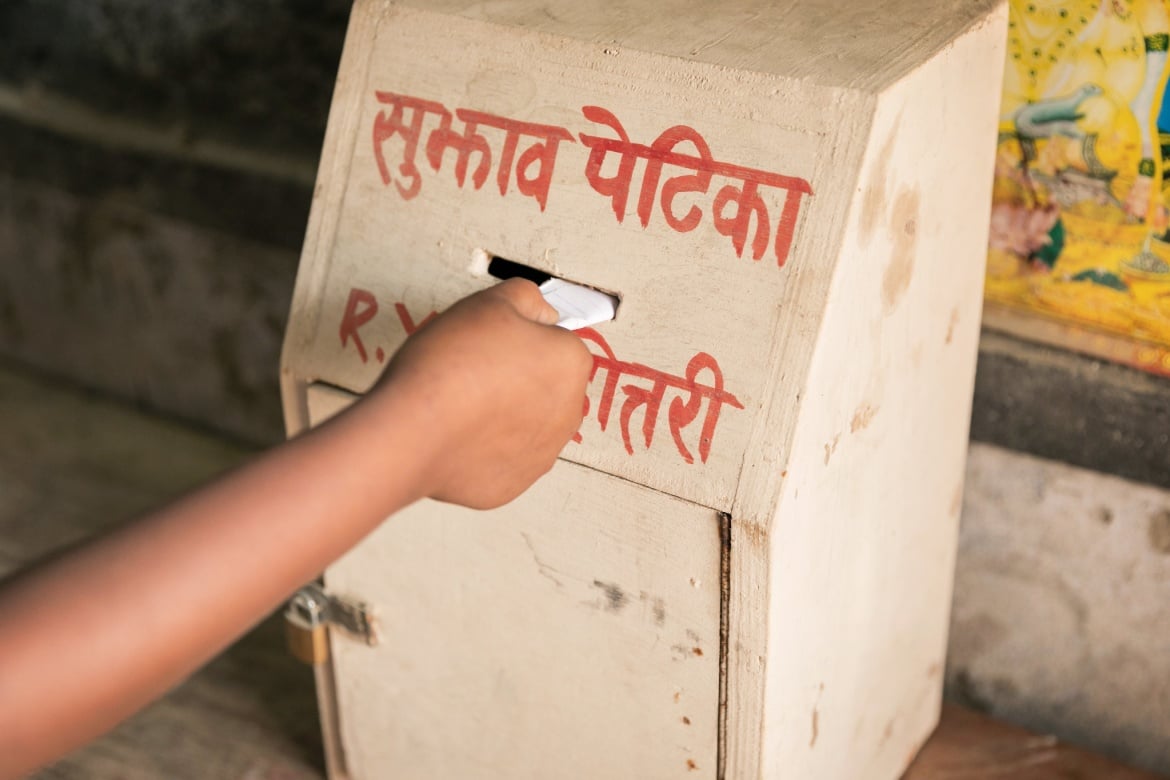
Grantee Advocacy Leads to 57 Policy Changes in Education
This year’s reporting is now in, and we are happy to share that Education Out Loud grantees have contributed to an impressive 57 policy changes — from increased education budgets to inclusive planning, and even a noteworthy ‘No Hair Cut Policy’ reflecting a progressive shift toward a more inclusive school environment.
Everywhere you look, there are inspiring stories about education: a child who, against all odds, manages to stay in school and build a brighter future; a teacher who goes the extra mile to support their students; a school community that comes together to create opportunities where none seemed possible. These stories matter deeply – but they are often the exception, not the rule.
Lasting, widespread change in education happens when governments work with civil society to make the right policy choices and follow through on them. That is why Education Out Loud places policy change at the very heart of its mission, and why we track these shifts every year as one of the programme’s most important measures of success.
57 policy changes were achieved across 28 countries
This year, we are proud to share that Education Out Loud grantees have been instrumental in 57 policy changes, each of which in its own way helps bring us closer to the vision of quality education for all.
“We are excited to be able to support grantees in scaling up their work and achieving such impressive results,” says Kristina Weibel, Monitoring, Evaluation and Learning Advisor with Education Out Loud. “The 57 documented policy changes are really just the tip of the iceberg — behind each of them lies countless smaller steps, persistent advocacy, and steady progress that together make systemic change possible.”
The 57 policy changes were achieved across 28 countries and cover a wide range of areas contributing to more inclusive, gender-responsive, and equitable education systems that meet the needs of all learners, including the most vulnerable and marginalised communities.
Three types of policy changes
The majority of the cases (24) are policies aimed at improving conditions and the quality of schooling, while 19 promote inclusion, and 14 focus on increasing education resources in general or for specific groups of learners.
Noteworthy highlights include a remarkable 20 percent salary increase and accommodation for teachers who accept postings to rural areas in Ghana, the development of new Education Sector Plans in Yemen and Samoa, and increased education budgets in Uganda and Senegal. At the municipal level, several inclusive local education plans have also been devised in Nepal.
“We’re witnessing impactful changes that align with local priorities. These results affirm that supporting locally led advocacy and citizen engagement, as Education Out Loud does, is effective in creating meaningful change,” says Lars Udsholt, Global Programme Manager with Education Out Loud.
10 Highlighted policy changes
- In Ghana, the OC2 alliance, CLEAR led by School for Life influenced a national policy known as “Teacher Dabre,” which introduces a 20% salary increase and improved accommodation for teachers accepting postings in rural areas. This long-awaited policy marks a significant step toward ensuring quality education in underserved regions by making rural teaching positions more attractive and sustainable.
- In the Philippines, the OC2 alliance MultiplyEd led by CYAN successfully advocated for a “No Haircut Policy” at the school level. While it may seem minor at first glance, the policy is transformative in promoting inclusivity and allowing students to express their identities freely, fostering a more accepting and supportive learning environment.
- In Tanzania, OC1 and OC2 grantees TEN-MET and Haki Elimu contributed to the development of a National Re-entry Implementation Plan. This national-level policy supports girls’ right to education by enabling re-entry into school after pregnancy. It reflects years of advocacy and collaboration between grantees and is a milestone in promoting gender equity in education.
- In Yemen, the OC1 grantee contributed to the development of the Education Sector Plan 2024–2030. Despite the fragile context, the coalition, supported by ACEA, actively participated in consultations and submitted evidence-based recommendations. This engagement demonstrates the power of civil society in shaping national education strategies even in challenging environments.
- In Nepal, the OC1 grantee at the local level influenced the Local Level Education Plan of Barahatal Rural Municipality (2025–2035). This policy change highlights the importance of grassroots advocacy and the role of local actors in shaping education plans that reflect community needs and priorities.
- In Uganda, the OC2 grantee CS-BAG, as part of a consortium, successfully advocated for an increased budget allocation to the education sector and the Human Capital Development (HCD) programme. This national-level policy change reflects the impact of sustained advocacy and participatory budget monitoring, ensuring more resources are directed toward education.
- In Vietnam, the OC1 grantee influenced Decision 403/QĐ-TTg, issued by the Prime Minister, which approves an education plan for persons with disabilities. The policy strengthens inclusive education support centres and special education institutions from 2025 to 2030, with a vision to 2050. It is a significant step toward ensuring equal access to education and lifelong learning for people with disabilities.
- In Mongolia, the OC1 grantee achieved a major milestone with the adoption of the first-ever comprehensive policy and implementing guidelines for bilingual education. This national policy addresses curriculum development, textbook creation, and teacher training for ethnic minority children, reflecting over 15 years of persistent advocacy.
- In Mozambique, the OC1 grantee influenced Ministerial Instruction GM/MEC/2025, which regulates contributions from the school community. This policy reinforces the right to free basic education and addresses the hidden costs that often burden families. It showcases the grantee’s strategic use of advocacy to promote equity and transparency in education financing.
- At the global level, GCE and CLADE contributed to the development of the Fortaleza Declaration, which includes commitments to foster transformative education, accelerate progress towards SDG 4, and invest in education and accelerate global cooperation towards 2030.
🔗 See the full list of policy changes here
